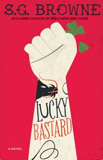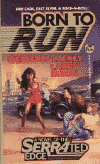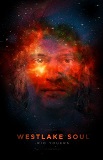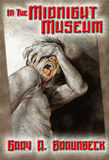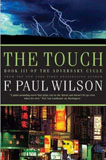
The Touch, by F. Paul Wilson
Book Review by David L. Felts
Have you read this book?
The Touch, by F. Paul Wilson, was originally published in 1985, but Wilson has done an update with a new edition re-issued in 2004. After a strange encounter with a dying homeless man, Dr. Alan Bulmer discovers he has the ability to cure any illness simply by touching his patients, although the power only seems to work during certain times of the day.
At first he refuses to accept what is happening to him, but there's no rational explanation. Accepting his gift, even though he doesn't understand it, he's determined to help, but tries to keep his new found abilities a secret. He uses his healing power as quietly as he can, secretly elated that he can now cure the incurable.
Of course keeping his healing gift under wraps doesn't work out, and Alan's life begins to unravel as he's assailed by people seeking his healing touch. His only allies are Sylvia Nash, her autistic son, and her Vietnamese gardener Ba, who has seen an individual with the same power as the doctor before in his homeland of Vietnam, and was, in fact, cured by him. Ba knows that the healing power exacts a steep price on the one who uses it.
Word of Alan's healings captures the attention of Senator James McCready, a powerful politician who also happens to be suffering from an incurable disease that he's managed to keep hidden from the public. Eager to know if Alan's power is real, he uses his influence and the medical foundation he supports to investigate Alan's power, seeing it as the only way he can escape death. How far will he go to get what he wants?
My understanding is that The Touch has been retconned to be part of Wilson's The Adversary series as the fourth volume, fitting into the Secret History of the World timeline just after Ground Zero (Repairman Jack #13) and Reprisal (AC Book #5). Having not read the 1985 original, I'm not sure what's different about this edition (besides the obvious pop culture reference updates and the addition of cell phones).
What we've got here is a sort of supernatural medical horror thriller, delivered with good writing and well-developed characters. Although a bit preachy in regards to ethics and politics, such passages still fit into the flow of the story. There are some good questions posed about the limits people are willing to go to in order to survive. If your wife was dying of cancer and you believed someone could cure her with a touch, how far would you go to try to save her? In the right circumstances, is there a desperate person inside all of us willing to do almost anything?
The Touch can be read as a stands alone novel, and is well worth the time to do so.
|
Click here to buy The Touch, by F. Paul Wilson on Amazon
|
The Touch, by F. Paul Wilson on Amazon

| More Books You Might Like |
Comment on The Touch, by F. Paul Wilson
| Comments on The Touch, by F. Paul Wilson |
| There are no comments on this book. |
